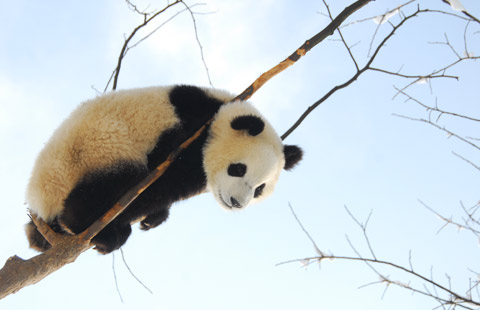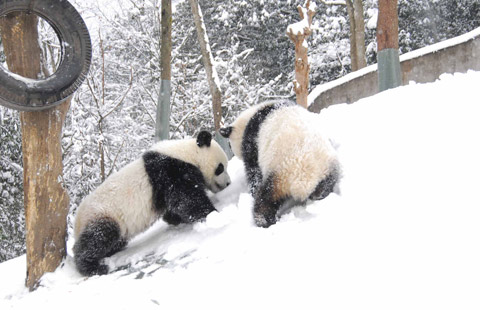Abe trampling history
Updated: 2014-02-19 07:05
By Martin sieff (China Daily USA)
|
||||||||
Time usually heals historical wounds. This lesson has been lost on Japan's current leadership, and the dangers it poses for the future of the country are enormous.
Japan never went through the wrenching, effective process of facing up to the terrible crimes its armed forces committed before and during World War II the way Germany did. For more than half a century, Japanese leaders generally kept a low profile in their public statements and carefully sought to avoid offending China, the Republic of Korea and other Asian countries that had been occupied or ravaged by Japanese forces during and before WWII.
Yet now, more than 75 years after the Imperial Japanese Army slaughtered hundreds of thousands of Chinese civilians in its drive to Nanjing, we find the current government and major institutions of Japan seeking to deny and suppress the raw, unbending facts of history.
What is, perhaps, most unsettling for a country that has presented itself for more than six decades as Northeast Asia's poster democracy is the move toward the equivalent of Holocaust denial. Japan refuses to even admit the nature, let alone scale, of its war crimes during WWII, and that refusal has now spread beyond the government to the country's most important broadcasting organization.
On Feb 7, Naoki Hyakuta, one of the 12 governors on the board of the Japanese government-owned NHK (Japan Broadcasting Corporation), accused the United States of inventing allegations to disguise its own war crimes - such as the firebombing of Tokyo and the dropping of the atomic bombs on Hiroshima and Nagasaki.
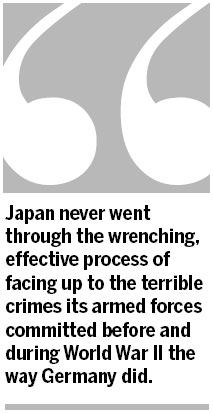
A week earlier, NHK's new chairman, Katsuto Momii, had said it was "only natural" for NHK to follow and support the Japanese government's positions on territorial disputes with other countries. "When the government says 'left' we can't say 'right'," he said. He even defended Japan's wartime system of sex slaves, notorious throughout Asia.
Japanese Prime Minister Shinzo Abe personally picked Momii to run NHK and set its editorial tone. He also picked another governor, Michiko Hasegawa, after she had written an article praising a postwar militarism fanatic who committed ritual suicide in 1993 in protest against the liberal Asahi Shimbun's criticism of his right-wing group outside the newspaper's offices. "There could be no better offering," she wrote.
Abe has created the dangerous atmosphere in which such things can happen. He is pressing systematically to abandon Japan's pacifist Constitution and to "update" legislation that mandates a neutral approach to education as opposed to the system of militarism, and fanatical and unquestioning obedience that was used in the 1930s to prepare the Japanese people for their unprecedented aggression and systematic war crimes against Northeast and Southeast Asian countries.
Abe's government has even announced plans to try and get the United Nations Educational, Scientific and Cultural Organization to officially list - and therefore validate and honor - more than 200 letters written by Japanese suicide kamikaze pilots during WWII and now are stored in Minamikyushu city, giving them a status comparable to that of Holocaust victim Anne Frank's diary and England's Magna Carta. The thousands of victims of the kamikaze attacks, it should be remembered, were all Americans, combat sailors of the US Navy.
The seriousness and dangers of these initiatives cannot be over-estimated. They have clearly been approved and coordinated at the highest level of the Japanese government. And they are dangerous for Japan, too.
In 1834, almost a century before Adolf Hitler and his Nazis seized power in Germany, Heinrich Heine, one of the greatest German poets and essayists, warned that ancient, barbaric Germany's primeval love of war would one day rise again. And when that happened, he wrote, "the frenzied madness of the ancient warriors, that insane berserk rage of which Nordic bards have spoken and sung so often, will once more burst into flame".
A nation's mind has to be conditioned before it goes berserk in its madness to conquer half the world, Heine warned. "Do not smile at the visionary who anticipates the same revolution in the realm of the visible as has taken place in the spiritual," he wrote. "Thought precedes action as lightning precedes thunder."
Heine's warnings echo in Tokyo today. Abe and his supporters on the NHK board are not just playing with lightning, they are also unleashing forces whose destructive power they seem incapable of imagining.
The author is chief global analyst for The Globalist and a senior fellow of the American University in Moscow, and author of Shifting Superpowers: The New and Emerging Relationship between the United States, China and India.
(China Daily USA 02/19/2014 page12)

 Spirit of adventure lives on in Antarctic
Spirit of adventure lives on in Antarctic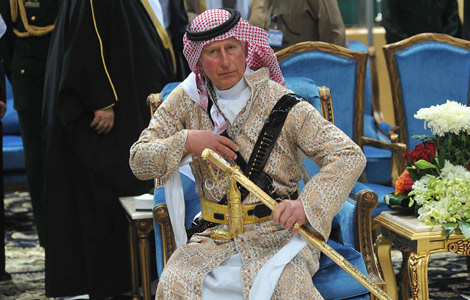
 Prince Charles dances in traditional Saudi dress
Prince Charles dances in traditional Saudi dress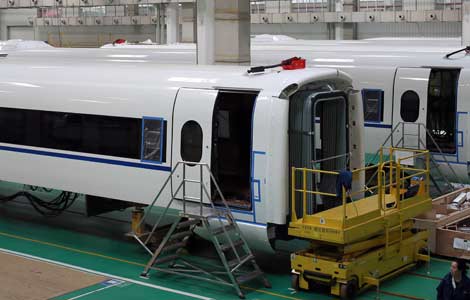
 Maglev trains speeding toward greener future
Maglev trains speeding toward greener future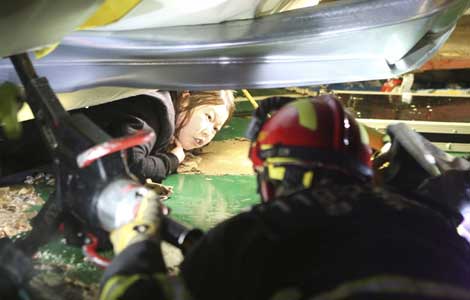
 Building collapse at Korean resort kills 10
Building collapse at Korean resort kills 10
 The big ballet stage
The big ballet stage
 17 more cement plants biting the dust
17 more cement plants biting the dust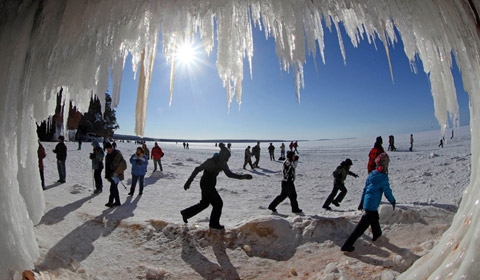
 World's largest freshwater lake frozen
World's largest freshwater lake frozen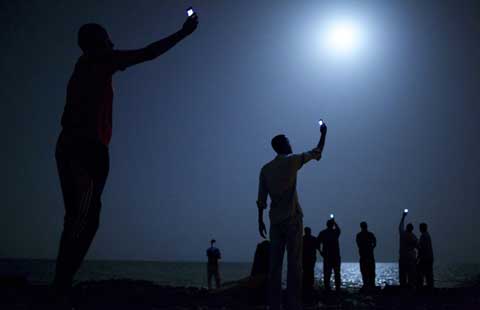
 American photographer wins World Press Photo 2013
American photographer wins World Press Photo 2013
Most Viewed
Editor's Picks

|

|

|

|

|

|
Today's Top News
Reforms to put safety first for low-level flights
PLA soldiers bigger, need new gear
China's aviation school banks on global ties
Green timber preferred overseas but not locally
NHK head regrets history words
Police to root out organizers of prostitution
Li to officials: Move ahead with improvements
'Equal' talks open to Taipei
US Weekly

|

|


